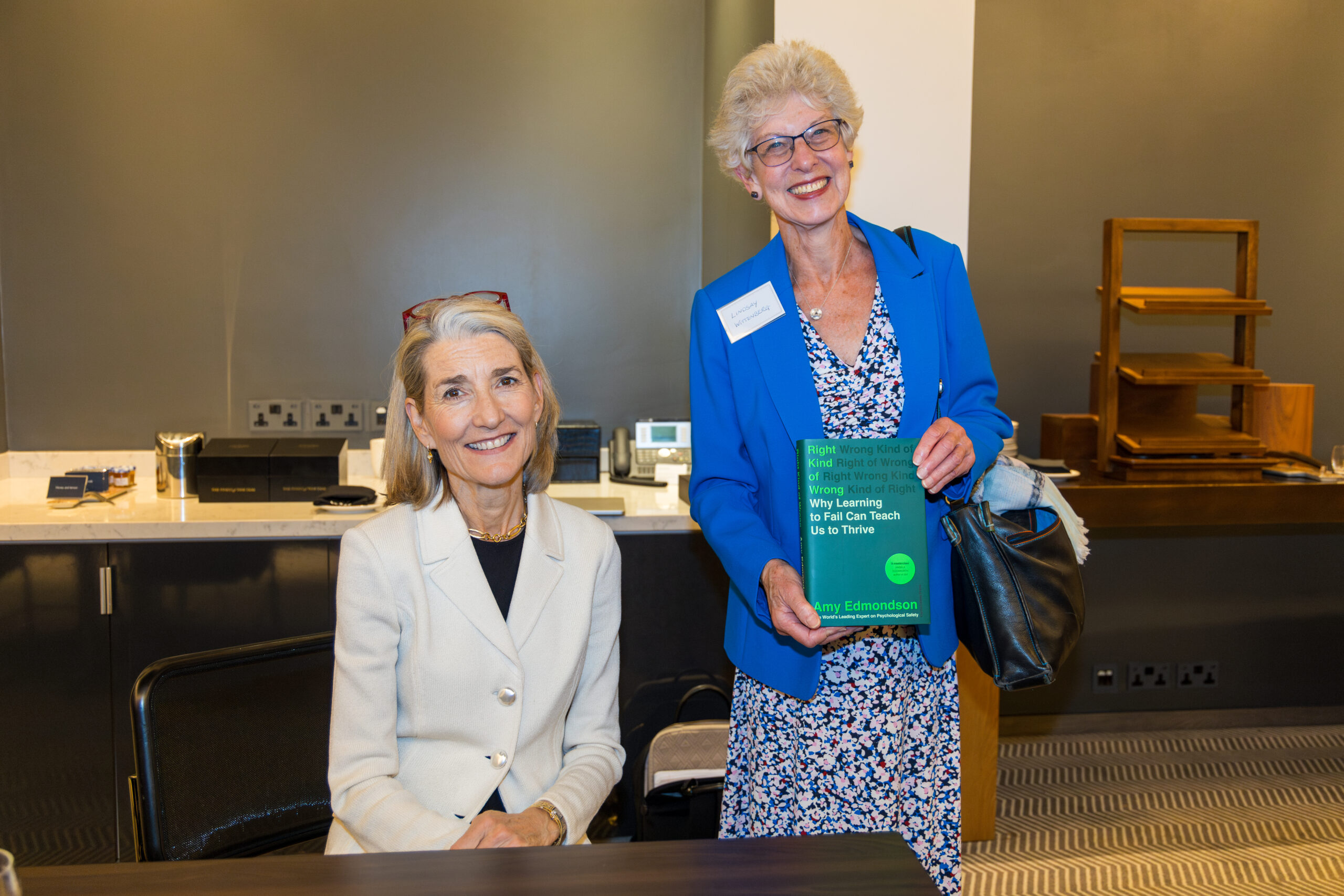blog
Time Shelter
In the novel Time Shelter by Bulgarian author Georgi Gospodinov, ‘an enigmatic flâneur named Gaustine opens a ‘clinic for the past’ that offers a promising treatment for Alzheimer’s sufferers: each floor reproduces a decade in minute detail, transporting patients back in time’ – to the time that is meaningful to them, so that they could stay there, not necessarily for ever but certainly for an extended stay. ‘Gaustine wanted to open up time for everyone….. to create a protected past or protected time. A time shelter. We wanted to open up a window into time and let the sick live there, along with their loved ones …. The idea was for them to stay together in the same year’.
Escape from the present
As Gaustine’s assistant, the unnamed narrator collects artifacts and indicators of the past, from 1960s furniture and 1940s shirt buttons to scents and even afternoon light. As the rooms become more convincing, an increasing number of healthy people seek out the clinic as a ‘time shelter’, hoping to escape from the horrors of the present – a development that leads to the past beginning to invade the present.
Time as a gift
The author treats time in one sense as a stage-set – nostalgia and familiarity as relief from illness, but for me there’s also something surreal about the past invading the present, as well as a suggestion that time is in a different plane from the actuality of everyday living – and a gift to the sufferer of memory loss, rather than the enemy it so often seems to be as a factor in our working lives.
Time and achievement
This perception of time as something we can have power over contrasts strikingly with the relationship that many (but not all) leaders and managers – and indeed organisational cultures – seem to have with time: a perception of time that treats it almost as a ‘thing’, and that sees us as victims of it (in Robert Kegan’s adult development theory language ‘subject to’ – or fused with). In our Western culture our relationship with time is one in which time is intimately connected with achievement, and with living not in the present, but in the future.
Achievement and self-worth
In turn, achievement is connected to a sense of self-worth: ‘my value is in what I’ve been able to accomplish, doing everything there is to be done’ – so a focus on doing rather than being. Winning the battle against the tyranny of time. I’ve had the privilege of participating in workshops that Simon Cavicchia has run on ‘Deconstructing Time’, which have been immensely illuminating. He suggests that we tend to think of time as a commodity, something that fills a space and that we so often fill, fending off a sense of emptiness.
Time and success
It’s arresting to reflect on the extent to which time features in our measurement of success in the work environment, in our perceived need for change, learning and development, and in the measurement of value. And entertaining to contemplate the contrast with ‘Time Shelter’, in which time – the past – is used to provide relief from the present.
Time as pressure
Simon Cavicchia invites us to see that, as a construct, time helps us make sense of our experience of the flow of life. As such it becomes a mental model that actually starts to shape our experience. It can become a source of pressure and can influence what we see and how we interpret what we see. We can feel like we are at the mercy of time.
Tyranny and emergence
This experience of tyranny is in contrast to a sense of emergence – a sense that not only do things happen in their own time, and in their own way (think of a butterfly emerging from a chrysalis) but that there is a richness in the emergence, a breadth of view with less pressure attached to it, and so enabling the capacity to perceive, accommodate and integrate a broader perspective, including an appreciation of the complexity inherent in that perspective. This is important for the task of leadership: to step back and see more interdependencies and more viewpoints.
There’s a relationship too between age and meaning. The link between time perspective and meaning in life across different age stages in adulthood was explored in research by Rebiguli Baikeli, Danli Li, Lei Zhu, and Zhenhong Wang, presented in the journal Personality and Individual Differences (Volume 174, May 2021, 110668).
Age and meaning
The research explored the moderating role of age in the relationship between time perspective and meaning in life in Chinese adults. For emerging and young adults, the future time perspective was positively related to the search for meaning in life. In contrast, for middle-aged adults, the present-hedonistic time perspective was positively related to the search for meaning in life, and the future time perspective was negatively related to the search for meaning in life.
Timeframes and the leader’s perspective
Contrast this with (as above) the judgment in ‘conventional’ (in the adult development sense) contexts that others make of us at work being related to progress, and predictable outcomes, over a 1-2 year timeframe, whereas in ‘post-conventional’ contexts the stance will be more about exploration (especially of our own personalities and richness of experience) within the present or a longer timeframe, or the optimisation of the interaction of people and systems over a 5-10-year period – or indeed integrating simultaneous, short, middle and long-term.
Photo by Andrik Langfield on Unsplash
Time as gift or tyranny?
The author of ‘Time Shelter’, Georgi Gospodinov, treats time as a gift to the sufferer of memory loss, rather than the enemy it so often seems to be as a factor in our working lives. This perception of time as something we can have power over contrasts strikingly with the relationship that many leaders and managers – and indeed organisational cultures – seem to have with it: a perception that treats time almost as a ‘thing’, and that sees us as victims of it. Our relationship with time enshrines an intimate connection with achievement. In turn, achievement is connected to a sense of self-worth. We can feel like we are at the mercy of time, in contrast to a sense of emergence, but there is a richness in the emergence, enabling the capacity to perceive, accommodate and integrate a broader perspective. This is important for the task of leadership: to step back and see more interdependencies and more viewpoints.
Read more »Responsibility - and hedgehogs
Imbalance in the way responsibility is used (and not used) in systems of all sorts, including organisations, is large-scale and widespread. Too much responsibility may be assumed (albeit unconsciously). This shows up with leaders who work hard to make sure that everything that needs doing is done, typically to a high standard, no matter whose responsibility it actually is. Inappropriate responsibility may be imposed in childhood, and taken on into work, via an expectation from one or other parent. When leaders fail to take on responsibility that is theirs, it may be that they feel inadequate to the task or may fear failing, and may persuade themselves that by not acting they don’t risk failure. Like the hedgehog who freezes in the middle of the road, they are likely to incur failure rather than avoid it. One of the classic situations in which appropriate responsibility is not given is represented by the micromanaging boss. In all these scenarios, both the team and the leader are weakened and become brittle: they lack resilience and the capacity to learn, develop and change as much as they could, and/or as much as they need to.
Read more »The Right Kind of Wrong
Amy Edmondson's new book 'Right Kind of Wrong: Why Learning to Fail Can Teach Us to Thrive' explains how we get failure (a potentially invaluable learning opportunity) wrong, and how to get it right, highlighting that the most successful organisational cultures are those in which you can fail openly, without your mistakes being held against you. We're living in turbulent times, and, as Amy Edmondson points out, failure is both more likely than ever – but if it’s the right kind of failure, it’s also more valuable than ever. While most failures in organisations are treated as blameworthy – and there are failures we should definitely work hard to prevent – there are others we should welcome. The latter are the intelligent failures.
Read more »David Hockney, painting, and coaching
I recently had the opportunity to visit the stunning David Hockney exhibition in London (‘David Hockney: Bigger & Closer (not smaller & further away)’. It prompted reflection for me both on what it offers to my conceptualisation of coaching and what I can learn that might enhance my clients’ experience of coaching with me. I found the exhibition nourishing, exciting, inspiring, refreshing, perspective-opening and deeply calming. It stimulated my thinking on how I might raise my awareness and challenge myself to look in more depth, and call on more perspectives and insights, with clients. Is there any sense in which I currently satisfy myself with looking partially, on a relatively small scale, or only in one perspective? Besides widening our perspective, the artist also highlights the rewards of looking in every direction at the same time, all the time. He characterises water as illusive, because all the patterns you see are on the surface. If, as coach, I take those patterns as the only patterns, then I’m only seeing part of the person I’m working with, and only some of the influences they’re subject to.
Read more »Who do you think you are?
I often hear leaders characterising themselves and their styles by reference to a set of behaviours, or a set of beliefs or values, or a combination of behaviours and beliefs. It's in this territory that the idealised self resides. The idealised self is the subject of quest, but probably not what is here now. And yet what is (and who is) now is, in a sense, the most powerful self we can be. However, I don’t often hear leaders describe their style by reference to their sense of who they are when they are truly present to themselves. Leaders I work with who discover and accept who they are tell me that the self- and system-awareness that is part of the discovery give them a palpable sense of acceptance, self-acceptance, peace and freedom. And from that emerge sustainable awareness of perspective, clear-sightedness about the ‘what’ and the ‘how’, compelling and engaging leadership, and capacity to relate healthily, learn and develop self, others and the organisation.
Read more »Where am I going? Achievement, development and transformation
Objective-orientated - directional - coaching will be appropriate for certain clients with certain types of coaching need. However, such coaching isn’t developmental coaching, or indeed transformational coaching. Development and transformation tend to be emergent: just because a client doesn’t appear to be going somewhere doesn’t mean nothing is happening. On the contrary, a great deal might be happening. A lack of structure in the emergence shouldn’t be confused with a lack of something valuable. There’s another aspect too to this kind of emergent coaching: not just acceptance, but radical acceptance. This, in turn, relates both to radical inclusion and to ‘weak signals’. All are important underpinnings of outstanding leadership.
Read more »Managing relationships: a somatic-relational lens
I’ve been working with a number of clients challenged by managing upwards or managing relationships with peers. In a variety of ways, I invited these clients to become aware of the bodily sensations and impulses towards movement that their individual experiences evoked for them. We worked together on the meaning of those sensations and impulses for them, and we worked at depth on any links with the various facets of how their ‘problematic’ relationships showed up in practice, with compassion and with a focus on the potential that new types of connection offered. Old messages and out-of-date interpretations came to the fore. Across these clients’ experiences there emerged an acceptance of ‘what is’, and an acceptance of ‘the other’ as they were rather than trying to fight it or resist it. They became more perceptive about the impact of ‘the other’ on them and theirs on ‘the other’. They felt more settled, safer, more trusting of themselves. They enacted more of their own true capability with a sense of greater space and freedom. Something important was released for them.
Read more »Presence and positivity
Positivity of thinking, behaviour, communication, leadership, and the way we relate to each other as human beings brings benefits. And yet, positivity without a foundation of reality and connection with one’s audience isn’t useful at all, and can indeed be damaging. If I share a dilemma or a problem with another person, I feel unacknowledged, unheard and let down if their response is simply to invite me to look on the bright side, to look for the pluses, or to look for the solution – or even to give me what they think is the solution. Any positivity I might experience is then short-lived and insubstantial. I need the other person’s presence. I need to be seen, and then I can feel a connection. Without that connection the other person’s positivity is too superficial to make any kind of difference for me – and at worst can actually betray my trust. I also need the other person to be attuned with me – to be paying attention to my inner experience.
Read more »Mirror, mirror
Following his arrival in a new role, a leader had been struggling with what he experienced as his line manager’s micromanagement and feeling like he had no voice. His line manager seemed to constantly present himself as being right, inviting no other views. The leader felt stifled and unheard. He felt isolated, and was beginning to get so disillusioned and distressed that he was wondering if the job was right for him. Things started to shift when he started to give attention in the coaching process to compassion for his line manager and the benefit of bringing more humility to the relationship. In a lightbulb moment he was shocked to realise that he, too, was behaving somewhat like his line manager in his interactions with his own team. His first step was to become more insightful and aware in the present moment. When we detach, we can more easily become aware of what might be reflected back to us from both others’ behaviour and our own. Might there be anything to learn from what we see in the mirror?
Read more »Power and place – and invisible women
She was a senior manager in a male-dominated environment. Did she really need power in order to establish and maintain her position? Did she have power by virtue of her position, and if so, only because of her position? How did her power show up and how did she think it showed up? How can women reclaim their power in a balanced, proportionate, appropriate way when they feel it’s been misplaced between the genders? Factors that help include leaders who have humility, sensitivity and perceptiveness, and contexts of real psychological safety and openness to learning. This might well be the stuff of development once leaders have realised the central role of psychological safety in effectiveness, collaboration, teamwork, innovation and improvement. importantly, it’s worth remembering that power isn’t simply external, something that goes on between oneself and others. It’s also internal: a sense of power that we create inside ourselves, a message to ourselves about our place in the world and about our agency over our own lives, behaviours, and patterns of thinking and acting.
Read more »











